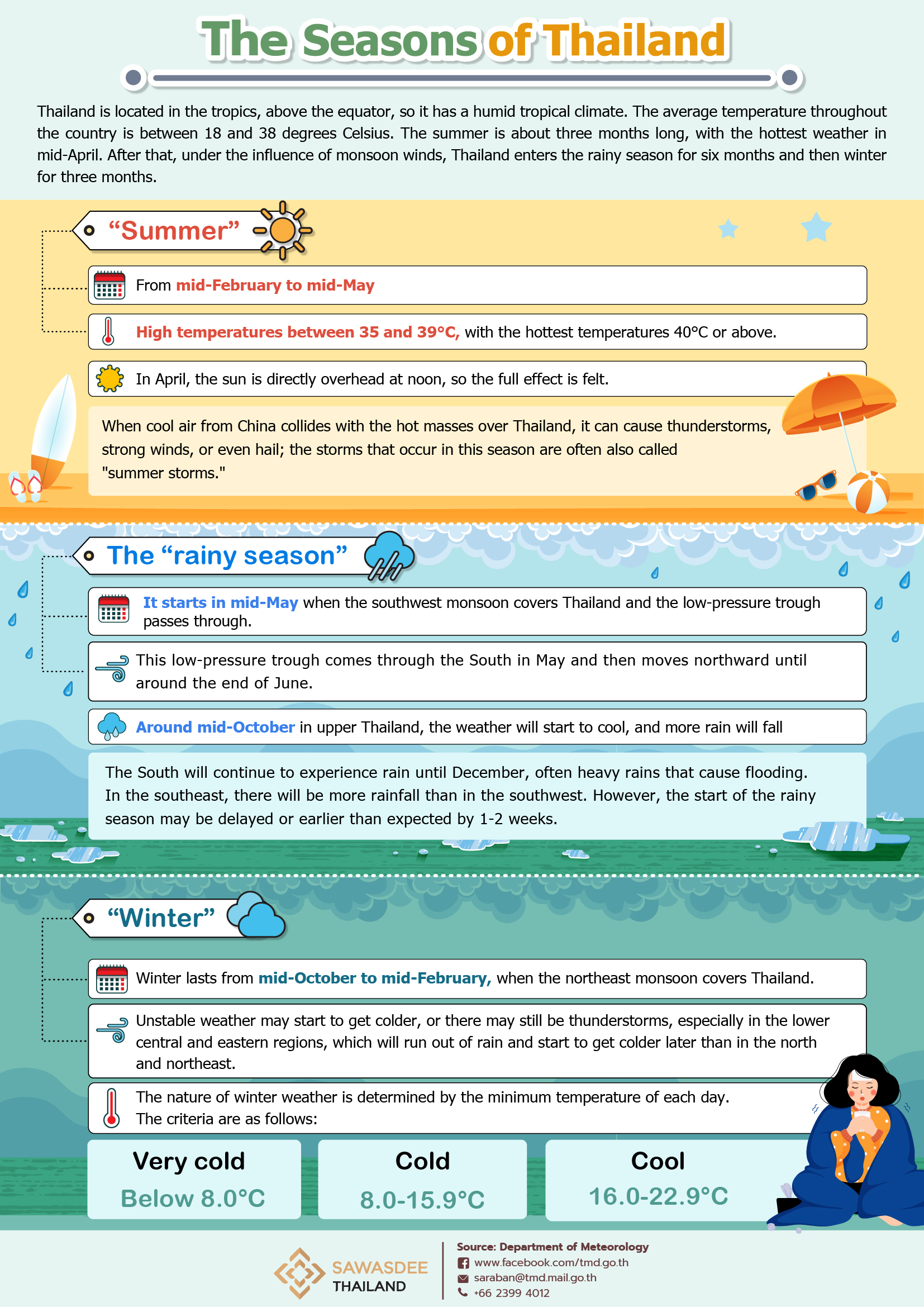
The Seasons of Thailand
The seasons of Thailand can generally be divided into three seasons, as follows:
Thailand is located in the tropics, north of the equator, so it has a humid tropical climate. The average temperature throughout the country is 18-38 degrees Celsius. The summer is about three months long, with the hottest weather in mid-April. After that, under the influence of monsoon winds, Thailand enters the rainy season for six months and winter for three months.
“Summer” runs from mid-February to mid-May, when the northeastern monsoon changes to the southwest monsoon, and the North Pole starts to tilt toward the sun, after the spring equinox in March.
In April, the sun is directly overhead at noon, so the full force of the heat is felt, making the air quite hot. Although the air is hot and dry in summer, there may sometimes be a cool mass of air from China that flows down to upper Thailand. When it collides with the hot air masses that cover Thailand, it can cause thunderstorms and strong wind, or even some damaging hail; the thunderstorms that occur in this season are often also called "summer storms."
The characteristics of summer air are determined by the maximum temperature of each day. The criteria are as follows: hot air temperature ranges between 35° and 39° C, and the hottest temperatures range above 40° C.

The “rainy season” starts in mid-May when the southwest monsoon covers Thailand and the low-pressure trough passes through Thailand. As a result, there is a general prevalence of rain. This low-pressure trough usually passes through the South in May and then moves northward until around the end of June. Finally, it passes through southern China, causing rain in Thailand to decrease for some time, which can last for a couple of weeks, but if it is severe, there could be little rain for months.
In July, low-pressure trenches normally slide back southward through Thailand again, causing persistent rains as the northeast monsoon covers Thailand instead of the southwest monsoon.
Around mid-October in upper Thailand, the weather will start to cool, and rain will fall, especially in the North and Northeast. Still, the South will continue to experience heavy rain until December, often heavy rains that can cause flooding. Especially in the southeast, there will be more rainfall than in the southwest. However, the start of the rainy season may be delayed or earlier than expected by 1-2 weeks.
There are specific criteria for determining rainfall during the 24-hour period of each day, starting from 07.00 hr and ending at 07.00 hr the next day. According to the nature of the rain in the tropics, the amounts of rainfall are described as follows:
“Winter” runs from mid-October to mid-February, when the northeast monsoon covers Thailand. It takes one to two weeks for the season to change from rainy to cold during mid-October. Unstable weather may start to get colder, or there may still be thunderstorms, especially in the lower central and eastern regions, which will run out of rain and start to get colder later than in the North and Northeast.

The nature of winter weather is determined by the minimum temperature of each day. The criteria are as follows:
Source: Department of Meteorology, 4353 Sukhumvit Road, Bangna, Bangkok. Tel. 0 2399 4012.
